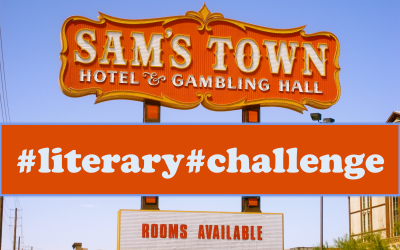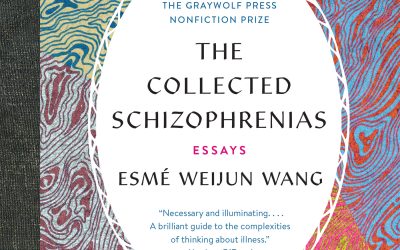What to Do With Old Writing
No matter when we’ve begun in our writing careers, we are bound to leave unfulfilled and unfinished works in our wake. Some of them we’ve discarded so long ago that they are nearly forgotten, unless they’ve been unearthed from an old notebook in your childhood bedroom...
How My Writer’s Journal Exposed the Toxic Mentality that Almost Made Me Stop Writing for Good [A Personal Testimonial]
I think of myself as a poet and a writer. Well, that’s what I thought pre-pandemic. In March, when the world reeled back and sank to its knees, I couldn’t find that part of myself among the scattered pieces that had been my life. Suddenly, I couldn’t engage with...
Tips For Writing In the Apocalypse
Look, we all knew the end would come for us eventually, and with the way 2020 was going for us, the end might be coming sooner rather than later. Us monkeys just can’t go around banging sticks together for thousands of years without there being some kind of...
Books to Read at the Start of Another Wild Year
2020, to put it lightly, was an awful year for most people. Our ways of living have been radically changed. COVID has been a constant worry and the presidential election caused stress for many. Although much in the immediate future is uncertain, we all must find...
Feeling Trapped in Quarantine? Here are 10 Ways to Escape in 10 Minutes
Covid have you in hibernation? While avoiding social interaction is essential to preventing Covid transmission, it’s also very isolating. Most of us feel drained emotionally, mentally, and creatively. Often writing prompts help me get pen back to paper after hitting a...
Visual and Online Storytelling
Since March of 2020, many people have been undoubtedly looking for an escape from the gravity of the pandemic. As public spaces temporarily open and close, audiences are looking to online storytellers to help relieve some of their stress during this difficult time. A...
More Than Just Knick Knacks: A Conversation with Lily Crooks, by Noah Topliff
Listen to Interview: (note: audio starts at :15) On Thursday October 1, 2020, I had a conversation with Lily Crooks, an established member of the Twin Cities literary community and graduate of the MFA program in Creative Writing at Hamline University. The plan was to...
No Place for Wolves: Cancel Culture and Consequences in the World of YA Fiction, By Kelly Holm
No facet of the public consciousness is invincible. Even the most spotless legacy can be tarnished by the unearthing of otherwise overlooked or long-forgotten iniquities. We see this in the growing re-examination of long-dead historical figures, Christopher Columbus...
10 classical playlists to write to, By Ann Marie Leimbach
Like many, I need some background noise while I’m writing. It could be the hum of a coffee shop or a tv on in another room, as long as it’s something not too distracting, I’m happy. But my favorite thing to write to is classical music. I’ve been studying classical...
The Only Worlds We Know, By Michael Lee, Reviewed by K McClendon
The Only Worlds We Know Micheal Lee Button Poetry Fall 2019 ISBN: 978-1-943735-60-0 92 Pages Reviewed by K McCLENDON If you are profoundly lucky, grief is something you know in name only. It has not yet made a home in the heart where someone you used to love once...
The Killers’ Literary Challenge By Tijqua Daiker
From the cinnamon challenge that had you gasping for breath in the half finished basement of the kid down the block to #thefloorislavachallenge #2k17, people these days no longer throw down their gauntlets or draw lines in the sand. Challenges take place on social...
The Collected Schizophrenias By Esmé Weijun Wang, Reviewed By Eliot Joy
The Collected Schizophrenias Esmé Weijun Wang Graywolf Press February 2019 ISBN 1-555978273 224 Reviewed by ELIOT JOY I bought my copy of The Collected Schizophrenias in spring of 2019 at a small, local bookshop with a flutter of hope in my chest. It’s rare to find...


![How My Writer’s Journal Exposed the Toxic Mentality that Almost Made Me Stop Writing for Good [A Personal Testimonial]](https://runestonejournal.com/wp-content/uploads/2021/02/zick_jessica_blogpost1photo-400x250.jpg)









